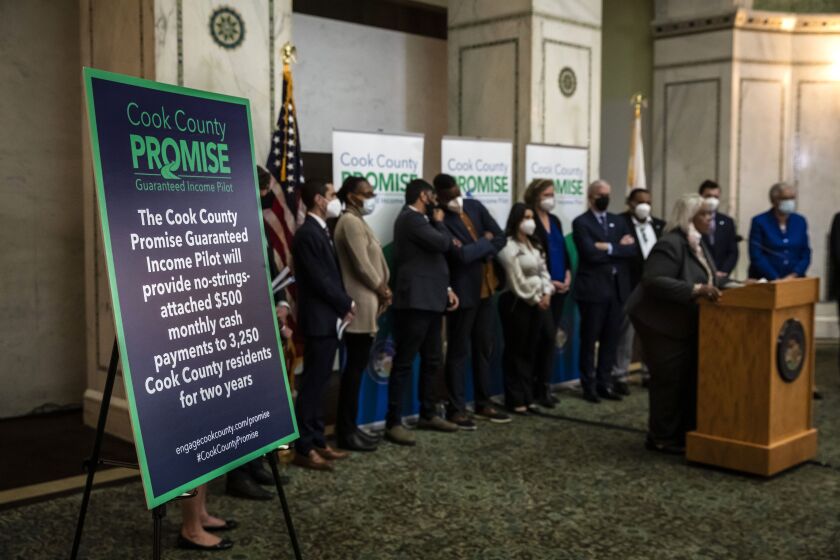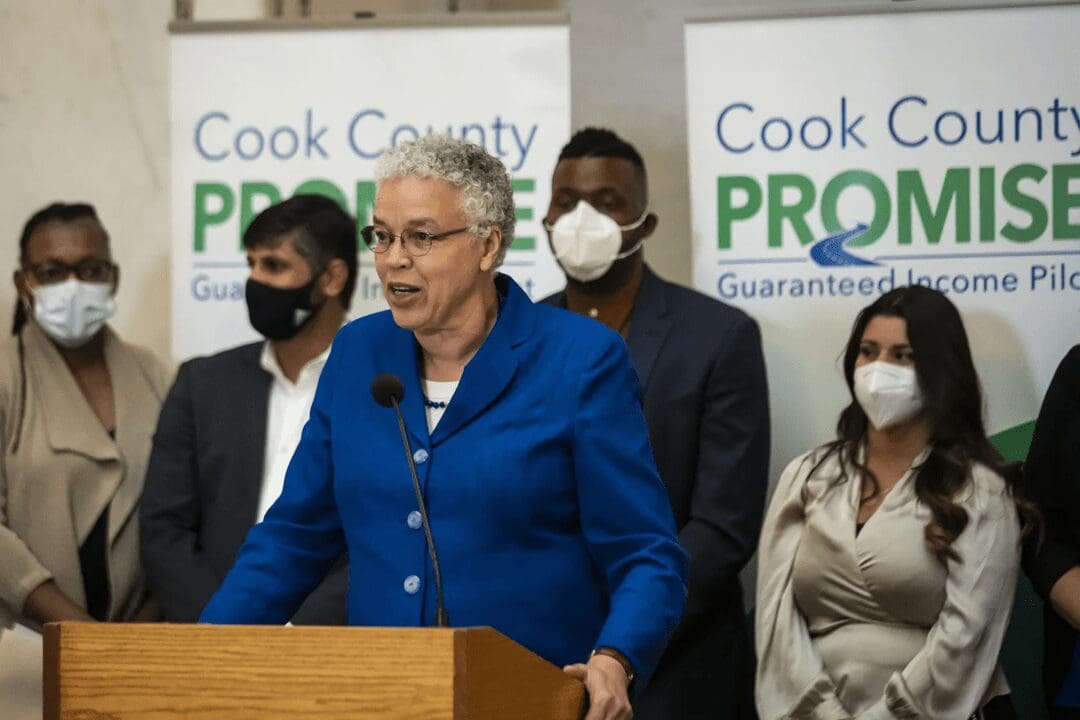By: Elvia Malagón
See original post here.
Cook County residents soon will be able to apply for a program offering $500 a month, no strings attached, for two years, as county officials try to tackle poverty and racial inequalities.
County officials announced the launch of the program — the Promise Guaranteed Income Pilot — at the Chicago Cultural Center. The two-year program will have room for 3,250 randomly-chosen residents, regardless of immigration status. It’s backed by federal funds from the American Rescue Plan Act.
Cook County Board President Toni Preckwinkle said she saw the need for a guaranteed income program during the coronavirus pandemic.
“We saw that low-income communities of color experienced the worst health and economic effects,” Preckwinkle said. “We believed then and we believe now those disparities were unacceptable.”
Officials provided few specifics about the rollout beyond saying they expect to take applications in the fall, recipients will be chosen in a lottery and first payments will hit residents’ pockets by year’s end.
The county, meanwhile, is seeking proposals from organizations and agencies to help administer the program, provide outreach and help in-person applicants. The county is accepting those proposals through June 10.

Cook County Commissioner Deborah Sims thinks the program will help residents live better.
“It’s not charity, it’s a helping hand,” Sims said.
The county is partnering with the University of Chicago’s Inclusive Economy Lab and the Crown Family School of Social Work, Policy, and Practice to study the the effect of providing that guaranteed income to Cook County residents.
To be eligible for the pilot, an individual must live in Cook County, and their household income must be below 250% of the federal poverty level. For a household of three, that means their income has to be $57,575 or less. For a single person, their income must be $33,975 or less. A household of five must have an income of $81,175 or less.
The county program is accepting applicants from Chicago, but they can’t participate in any other guaranteed income program; the city is launching its own, similar effort. Most participants — which will be selected in a lottery — are expected to be from suburban Cook County.
The announcement comes days after Chicago stopped accepting applications for its pilot program, also backed by the American Rescue Plan. The city’s Resilient Communities Pilot will select 5,000 participants, also through a lottery; those individuals will receive $500 a month for a year.
In recent years, other cities and states have rolled out similar programs that provide residents with cash without restrictions on how to spend it. A study looking at a program in Stockton, California, found participants used the funds to pay off debt, get full-time jobs and reported lower rates of anxiety and depression, the Associated Press reported.
Michael Tubbs, the former mayor of Stockton, joined Cook County officials. People in his administration’s guaranteed income program were more likely to transition to full-time jobs than those who did not receive the cash payments.
“I promise you that this is not just some pie-in-the-sky idea,” Tubbs said. “It’s rooted in evidence, in data.”
While the program is a pilot, county officials said they would like to make it permanent through the county’s equity fund.
“Make no mistake: We are interested in long-term solutions to the glaring issue of income inequality,” Preckwinkle said. “Our promise to Cook County residents is to make the program permanent in the years to come.”




















